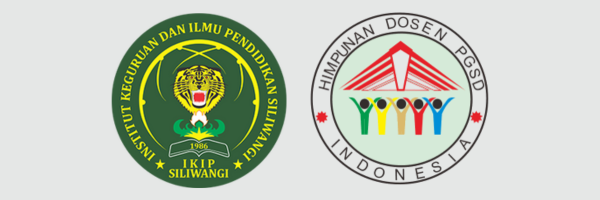HOW PARENTS EDUCATION IMPROVE STUDENT ACHIEVEMENT?
DOI:
https://doi.org/10.22460/pej.v5i1.1714Abstract
The Education in elementary school is a very important factor. Because the elementary school level is the foundation for the development of children's thinking and learning abilities influences and influences to the next level. The purpose of this research is to determine the academic achievement of students who are influenced by the parent’s education level. This research used a quantitative approach with a correlation test. The research conducted at Elementary school of 105 Tampan Pekanbaru to all of grade V students, with 150 total students. The Researcher used the Krejcie and Morgan tables sampling with 108 students. Based on the results of the correlation test shows that the magnitude of the father's education correlation coefficient on student academic achievement is 0.012 while the correlation of maternal education to student academic achievement is 0.081. Both are below the value of the r product moment correlation coefficient table for a sample of 108 with a significance level of 5% that is equal to 0.187. Thus the hypothesis H0 is accepted, it means that there is no meaningful relationship between parental education and student achievement.
References
Bustami, Y., Syafruddin, D., & Afriani, R. (2018). The Implementation Of Contextual Learning To Enhance Biology Students’ Critical Thinking Skills. Jurnal Pendidikan IPA Indonesia, 7(4), 451-457. DOI: 10.15294/jpii.v7i4.11721.
Dewantoro, H. (2017). Pengertian Pendidikan Dasar. [Online] Retrieved on 22-May-2019, at URL: https://silabus.org/pendidikan-dasar/.
Dewi, Y.E., & Kurniaman, O. (2019). Analisis Keterampilan Dasar Menjelaskan oleh Guru Dalam Mengajarkan Membaca Permulaan Siswa Tunagrahita di SDLB Kasih Ibu Pekanbaru. Primary: Jurnal Pendidikan Guru Sekolah Dasar, 8 (1), 37-46. DOI: http://dx.doi.org/10.33578/jpfkip.v8i1.6361.
Frielink, N., & Embregts, P. (2013) Modification of motivational interviewing for use with people with mild intellectual disability and challenging behavior. Journal of Intellectual and Developmental Disability, 38(4), 279-291, DOI: 10.3109/13668250.2013.809707.
Friedman, C., & Spassiani, N. A. (2018). Community-Based Dietician Services for People With Intellectual and Developmental Disabilities. Journal of Policy and Practice in Intellectual Disabilities, 15(4), pp 343–349. doi: 10.1111/jppi.12253.
Fitrianingsih, Genjik. B. S., & Rosyid, R. (2017). Pengaruh Pendapatan Orang Tua Terhadap Tingkat Pendidikan Anak Desa Sungai Asam Kabupaten Kubu Raya. [Online] Retrieved on 22-May-2019, at URL: file:///C:/Users/USER/Downloads/15180-45770-1-PB.pdf.
Hanani, S. (2013). Sosiologi Pendidikan Keindonesiaan. Yogyakarta: Ar-ruzz Media.
Kurniaman, O., & Noviana, E. (2013). Penerapan Kurikulum 2013 dalam Meningkatkan Keterampilan, Sikap, dan Pengetahuan. Primary: Jurnal Pendidikan Guru Sekolah Dasar, 6(2), 389- 396.
Kurniaman, O., & Zufriady. (2019). The Effectiveness of Teaching Materials for Graphic Organizers in Reading in Elementary School Students. Journal of Educational Sciences, 3(1), 48-62.
Kurniaman, O., & Huda, M. H. (2018). Penerapan Strategi Bercerita Untuk Meningkatkan Keterampilan Menyimak Siswa Kelas III SD Muhamadiyah 6 Pekanbaru. Primary: Jurnal Pendidikan Guru Sekolah Dasar, 7(2), 249-255.
Kartika. (2013). Pengaruh Peranan orang Tua Terhadap Pendidikan Anak. [Online] Retrieved on 22-May-2019, at URL: https://www.kompasiana.com/bahasa.kita/552888af6ea83439058b45a8/pengaruh-peranan-orangtua-terhadap-pendidikan-anak.
Lia. (2016). 10 Peran Orang Tua dalam Mendidik Anak di Era Globalisasi. [Online] Retrieved on 22-May-2019, at URL: https://cintalia.com/kehidupan/orang-tua/peran-orang-tua-dalam-mendidik-anak.
Misyani & Antosa, Z. (2018). Penerapan Model Pembelajaran Inkuiri Untuk Meningkatkan Hasil Belajar IPA Siswa Kelas IV SD Negeri 6 Kadur, Jurnal Online Mahasiswa Universitas Riau, 5(1), 1- 12.
Myklebust, J.O. (2007). Diverging paths in upper secondary education: competence attainment among students with special educational needs. International Journal of Inclusive Education, 11(2), 215-231, DOI: 10.1080/13603110500375432.
Mediabki, N.A. (2017). Pengaruh Pendidikan Orang Tua Terhadap Perkembangan Anak. [Online] Retrieved on 22-May-2019, at URL: https://nurulauliamediabki.wordpress.com/2017/06/01/pengaruh-jenjang-pendidikan-orangtua-terhadap-perkembangan-anak/.
Ngalimun, (2012). Strategi dan Model Pembelajaran, Aswaja Pressindo, Yogyakarta.
Noviana, E.& Munjiatun, (2015). Hand Out : Konsep Dasar Pendidikan Kewarganegaraan di Sekolah Dasar, Program Studi PGSD Jurusan Pendidikan, FKIP Universitas Riau, Pekanbaru.
Sakhiyya, Z., Agustien, H. I. R., & Pratama, H. (2018). The reconceptualisation of knowledge base in the pre-service teacher education curriculum: Towards ELF pedagogy. Indonesian Journal of Applied Linguistics, 8(1), 49-56. doi: 10.17509/ijal.v8i1.11464.
Sugiyono. (2010). Metode Penelitian Pendidikan Pendekatan Kuantitatif, Kualitatif dan R&D. Bandung: Alfabeta.
Suharsimi, A. (2018). Dasar-dasar Evaluasi Pendidikan. Jakarta: Bumi Aksara.
Sukardjo, M.,&Komarudin,U, (2012). Landasan Pendidikan: Konsep dan Aplikasinya. Jakarta : Rajawali Pers.
Tu‟u, T. (2009). Peran Disiplin pada Perilaku dan Prestasi Siswa. Jakarta: Grasindo.
Zufriady, Z., & Kurniaman, O. (2019). The Effectiveness of Learning Basic Concepts of Art for Primary Teacher Education Students Using Nomor Acak Learning Model. Mimbar Sekolah Dasar, 6(1), 3242.doi:http://dx.doi.org/10.17509/mimbar-sd.v6i1.15241.












